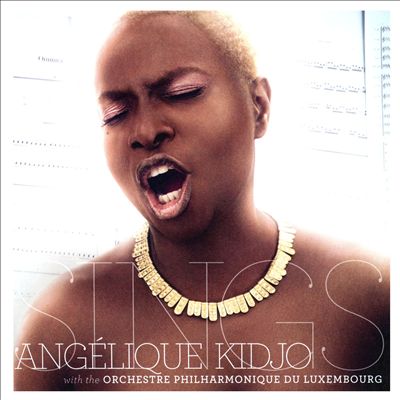The merger of African and Western classical music has a history. The Kronos Quartet dove in bravely collaborating with African composers on the 1992 release Pieces of Africa. The results were fascinating, though mixed, the combination of bowed strings and percussion proving particularly tricky. Classical guitarist John Williams made a bold foray into Africa on his 2001 release The Magic Box, and subsequently toured that material accompanied by guitarist John Etheridge. The younger South African guitarist Derek Gripper has made a particularly deep exploration of West African kora music. His 2012 release One Night on Earth showed remarkable innovation and a looser, easier way with the music. Interestingly, Williams and Gripper are now collaborating, including in a concert at the Globe Theatre this spring.
And there are other examples. Classical artists and ensembles can become fascinated by the elegance and lyricism of African music, and when they do, they naturally seek to connect with it, despite the chasms of musical culture that separate them. Issues of formality, structure and spontaneity inevitably arise. But when a genuine connection can be made, it’s magic, and by and large that’s the case with Angelique Kidjo’s collaboration with Orchestre Philharmonique du Luxembourg, simply entitled Sings (429 Records).
Kidjo approaches this project primarily as a singer. She introduces elements from her other ensembles, including guitarists Lionel Loueke and Dominic James, bassist Christian McBride, and some fine African percussionists on a few tracks. But mostly, what we get is Kidjo taking the role of a vocal soloist in an orchestral setting—and that works beautifully. In fact, this is a surprisingly effective showcase for her. Kidjo wisely emphasizes more melodic material, beginning with a hauntingly elegant read of her signature cover, “Malaika.” Kidjo has long since proven her ability to command a bucking pop band; she can belt and wail with the best of them. But this setting really brings out the nuances in her voice. When she growls and cries out the big notes in this simple folk song, both the song and the singer are quite astonishingly enlarged.
Of course, rhythm is central to the appeal of many of Kidjo’s songs, but here it is often her own voice, not the orchestral accompaniment, that drives the groove. That’s the case on “Ominira,” a song she composed with the idiosyncratic Brazilian guitar maestro Vinicius Cantuaria. In this take, Kidjo’s staccato delivery provides the propulsion, leaving the orchestra free to focus on the lushness of the song’s intriguing harmonies.
When the project does move into full-on dance music, as with the song “Kekele,” fingerpicked nylon-string guitar carries the groove enhanced by light percussion, while Kidjo’s vocal glides and the orchestra provides spare, playful commentary. This is a hard thing to get right. The sound of bowed strings flailing furiously to play an African rhythm rarely works, and this project wisely avoids that trap. A similar approach works well on the traditional song “Otishe” and on the Afro-Latin tinged “Nanae.”
But really, it’s the slower pieces that run deepest here, because they let Kidjo’s distinctive voice to display its many colors supported by lush beds of sustained harmony as on “Fifa,” “Naima” and “Loloye.” And then there’s the choral work. It’s hard to tell how many singers are involved, but at times it sounds like a massive choir nicely enhancing the overall majesty of the performance.
Kidjo has had quite a run of late. Her autobiographical CD Eve won her a second Grammy Award this year, bringing new attention to her recently published memoir Spirit Rising: My Life, My Music. She seems to tour constantly, wowing crowds with her dependably rousing performances while tirelessly promoting her cherished causes—women’s empowerment and girls' education in Africa. Given her growing stature, Kidjo can afford to take risks, and you could argue that an African pop singer collaborating with a symphony orchestra is a risk. But anyone who has watched this dynamo operate over the years might have known what would happen. Once again, Angelique Kidjo has knocked it out of the park.
This just in: Kidjo has also been awarded a David Rockefeller Bridging Leadership Award in recognition of international activism and humanitarian work. We congratulate Kidjo on the honor!









